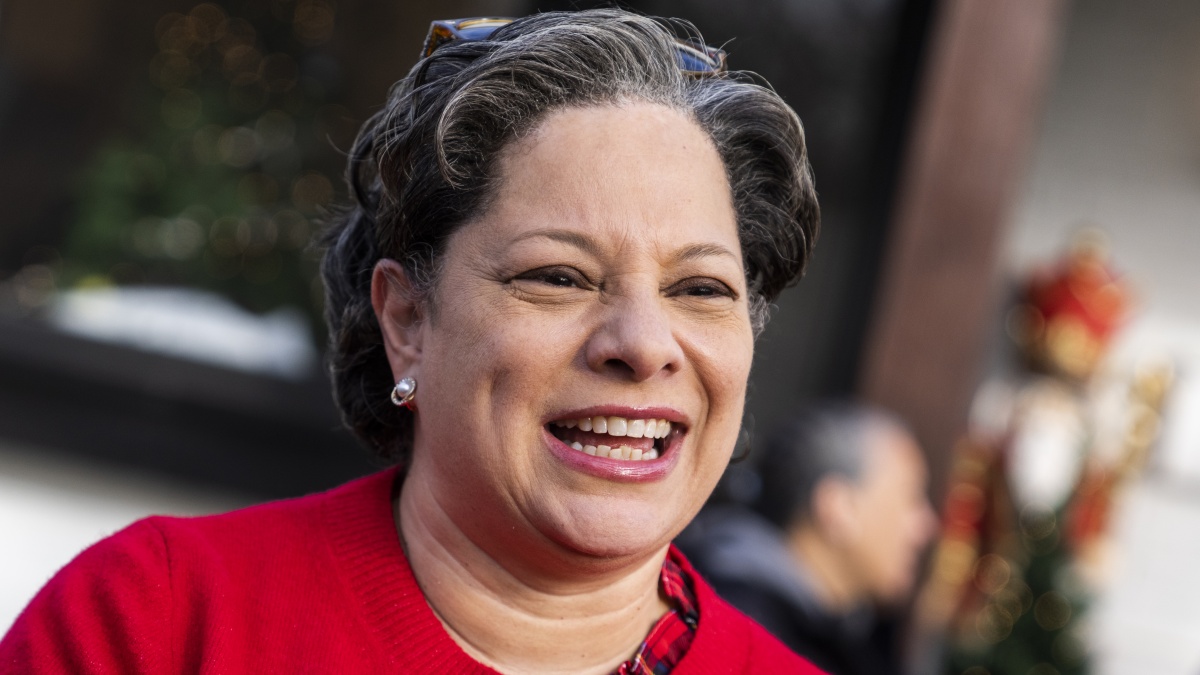Washington, D.C., Mayor Muriel Bowser won the Democratic primary on Tuesday, overcoming a progressive rival and virtually guaranteeing that she will win a third consecutive term to lead a city confronting inequality, crime and public safety concerns.
Bowser defeated At-large Councilmember Robert White, who harshly criticized her response to spiraling violent crime rates, and Councilmember Trayon White, who represents Ward 8, the poorest and most crime-ridden area in the District.
The winner of the Democratic primary is the prohibitive favorite in the November general election in the heavily Democratic city. That would make Bowser the second mayor to win three consecutive terms, tying with Marion Barry, who presided over the city continuously from 1979 to 1991.
We're making it easier for you to find stories that matter with our new newsletter — The 4Front. Sign up here and get news that is important for you to your inbox.
The primary in Washington unfolded as many cities that are Democratic strongholds debate how to contend with crime. In Washington, homicides have risen for four years straight, and the 2021 murder count of 227 was the highest mark since 2003. In January, a candidate for the D.C. Council, Nate Fleming, was carjacked at gunpoint. On Sunday night, gunfire erupted at a street concert 2 miles from the White House, killing a 15-year-old boy and wounding three others, including a police officer.
See DC Primary Results Here
Under pressure from activists calling to defund the police, Bowser largely stood by her police department, fighting public battles with the D.C. Council over the police budget. She quietly replaced an older white police chief with a younger Black successor and has pushed for funding to build Metropolitan Police Department staffing, currently at 3,500, up to 4,000 officers over the next decade.
Decision 2022
Coverage of the 2022 elections
In April, the D.C. Council’s judiciary committee cut $6 million from Bowser’s $30 million budget proposal to hire more officers, targeting incentives Bowser claimed were vital to attract good candidates. The committee, on which neither of her challengers serves, did approve a $20,000 hiring bonus to help recruit more police officers, something Bowser announced a few days before the primary.
“I’ve never been to a community where they said they didn’t want the police. Never,” Bowser said in a radio debate last month. “We need the police that we need.”
In the summer of 2020, following mass protests over the killing of George Floyd by police in Minneapolis, Bowser publicly feuded with then-President Donald Trump after racial justice protesters were forcibly cleared from an area near the White House. Bowser responded by renaming the protest epicenter Black Lives Matter Plaza and commissioning a mural with “Black Lives Matter” painted on a stretch of 16th Street, one block from the White House, in giant yellow letters.
Bowser, 49, campaigned on her experience and leadership and her history as one of the faces of Washington’s ongoing quest for statehood. She also received good marks for her handling of the pandemic, generally operating in coordination with the D.C. Council.
Robert White, 40, had a history of successful insurgent campaigns, having unseated an entrenched incumbent for an at-large Council seat in 2016. He proposed tackling crime through a massive public and private youth jobs program that Bowser derided as unsustainable.
Trayon White, 38, invoked the spirit of Barry, the late mayor and councilmember who remains a controversial but beloved figure among many Washingtonians. A former grassroots community activist, White was a protégé of Barry’s and opposed Bowser’s bids to hire more police officers. He favors community violence intervention programs, something he says Bowser was slow to embrace.
D.C. Council
D.C. Council Chairman Phill Mendelson is projected to win his primary over challenger Erin Palmer.
Mendelson campaigned on education, crime and affordable housing and, like Bowser, wants to increase the size of the police force. Palmer, an attorney who serves as an ANC commissioner, campaigned on a more progressive platform.
In Ward 1, incumbent Incumbent Brianne Nadeau is the projected winner. She is running for her third term. She faced challengers Salah Czapary, who served as an officer in uniform and then in a civilian position with the Metropolitan Police Department, and Sabel Harris, an ANC commissioner whose work has included marketing for technology companies.
In Ward 3, Matt Frumin appears to be headed to victory. He's an attorney with a focus on education, with support for mayoral control of schools, plus increasing development in commercial corridors.
Competitor Eric Goulet, a former D.C. budget director who has emphasized overcrowding in schools and the need for more police officers, conceded in a statement posted to Twitter.
When longtime Ward 3 Councilmember Mary Cheh announced she would not seek reelection, it opened the door to a crowded field of candidates. Nine candidates ran on the Democratic ticket. A week before the primary, three candidates dropped out, though their names still appeared on the ballot.
In Ward 5, Zachary Parker, president of the D.C. State Board of Education, is projected to win the open seat. He faced six opponents.
In the race for an at-large council seat, Anita Bonds appeared headed to victory to retain her seat. She ran for a third term.
The Democrats running against her were:
- Nate Fleming, an attorney who served as D.C.’s shadow U.S. representative and legislative and committee director at the D.C. Council. Fleming was endorsed by The Washington Post.
- Lisa Gore, who spent 28 years in government work, including as an investigator for HUD’s Office of the Inspector General.
- Dexter Williams, who worked for Council Member Robert White and in government relations for Howard University before assuming his current job at RepresentUs, which aims to improve election systems around the country.
D.C. Attorney General
Brian Schwalb appears to be headed to victory in the attorney general's race. He earned the backing of The Washington Post and current AG Karl Racine. He's a law office partner whose priorities include keeping juveniles out of the criminal justice system, combatting wage theft, and closing equity and income gaps.
Racine, who served as D.C.’s first elected attorney general, opted not to seek a third term. Three candidates ran to become the District’s chief law enforcement officer. A fourth person, Councilmember Kenyan McDuffie, suspended his campaign after the Board of Elections deemed he did not qualify.




